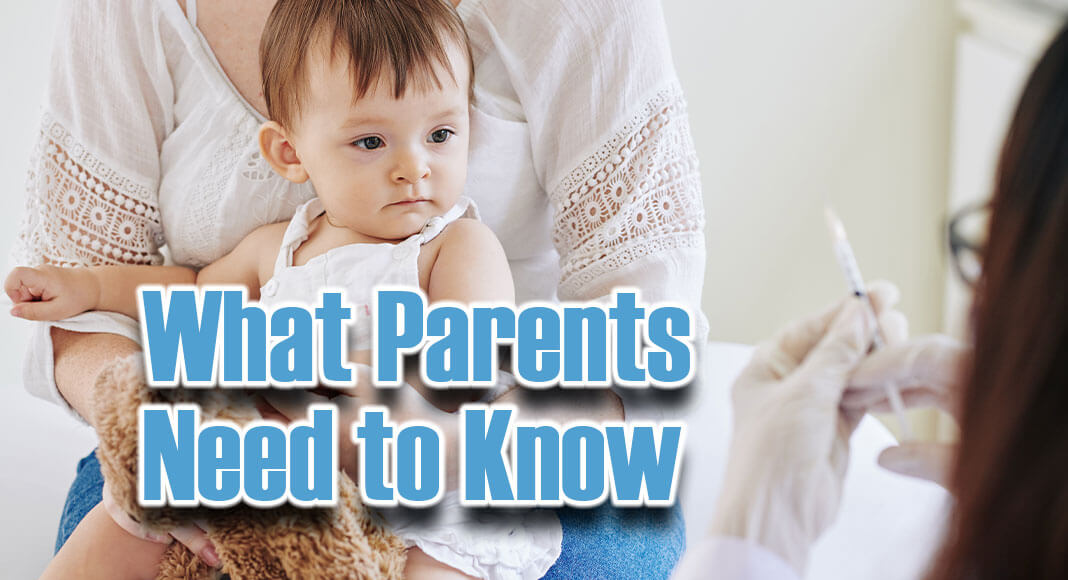
Mega Doctor News
Cedars-Sinai – For many families with young children, the moment they have been waiting for has finally arrived: The U.S. Food and Drug Administration (FDA) has authorized emergency use of two COVID-19 vaccines made by Moderna and Pfizer-BioNTech for children 6 months to 4 years old. In California, vaccinations can be scheduled by visiting MyTurn.ca.gov.
The approval comes on the heels of the news that COVID-19 is now the fifth-leading cause of death in children 1 to 4 years old and the fourth-leading cause of death in children younger than one.
The Cedars-Sinai Newsroom spoke with Priya Soni, MD, assistant professor of Pediatric Infectious Disease at Cedars-Sinai Guerin Children’s, about what parents and caregivers of young children need to know about the COVID-19 vaccines.
Newsroom: Many children have already had COVID-19 by now. Why is important they still get vaccinated?
Soni: Although it’s true that many children have already been exposed to COVID-19, these vaccines help prevent children from getting severely ill and from developing long-term complications due to the virus, including death. This virus is far more dangerous and unpredictable than the flu. During the Omicron surge in late December and January, children 4 and under were hospitalized at five times the rate than during the peak with the Delta variant. Infection with earlier variants might not protect against current ones, and every four to six months we are seeing a new variant emerge. This virus is clearly not done impacting our children.
Newsroom: Do healthy children need the vaccine?
Soni: Yes, healthy children should get vaccinated. Even if your child has zero medical risk factors, complications due to this virus can still occur and are not ones that you would want to take a chance with. As an infectious disease physician, I have taken care of many children who were previously completely healthy but developed serious complications such as severe lung infections, collapsed lungs, new-onset seizure disorders, long-haul COVID or MIS-C (multisystem inflammatory syndrome in children). Some children have also developed post-COVID complications like bacterial meningitis. None of these children were previously vaccinated. Now they finally have the opportunity to be protected like the rest of the population, thus providing another potential advantage to vaccination.
We also know that children can transmit the virus when they have no major symptoms. Young kids exposed to COVID-19 in child care settings or by their caregivers can then expose their vulnerable grandparents or other high-risk immunocompromised people. Several studies have shown that vaccinated people are infectious for a shorter period than unvaccinated people.
Newsroom: How can parents know the vaccines are safe and have been tested enough?
Soni: COVID-19 vaccines have been studied more than any other vaccine in history. The FDA has conducted a thorough analysis of the data submitted by the vaccine companies for this age group, and held the results to the same safety and effectiveness standards as all other types of routine pediatric vaccines in the United States. In addition, a separate, independent committee called the Advisory Committee on Immunization Practices COVID-19 vaccine work group, which includes providers and specialists who provide guidance to the director of the Centers for Disease Control and Prevention, has analyzed the data and concluded unanimously that the vaccines should be authorized for this age group.
Newsroom: What are the possible long-term health effects of the vaccines?
Soni: There are no long-term health effects of these vaccines other than they will protect your child from contracting and developing potentially devastating complications from this virus. All vaccines can cause mild side effects, and this is nothing to be worried about. No vaccine in history causes side effects more than two months from the point of vaccination. As we are way beyond that point for the majority of children who have been vaccinated in these trials, parents should feel even more confident in the safety of the vaccines.
Newsroom: Should parents be concerned that the vaccines are new?
Soni: The vaccines are not new. They are new for this age group, but the Pfizer vaccine has been given to children ages 5 and older since November 2021. More than 10.1 million children ages 5 to 11 have received at least one dose of this vaccine as of June 15, 2022. In studies of the vaccine in the younger age groups, no deaths were reported in any trial participants, and serious adverse events were extremely rare.
Parents should start thinking of COVID-19 as a vaccine-preventable illness. Just as with other vaccines, such as for meningitis or whooping cough, they should think of the COVID-19 vaccine as something that can protect their child.
Newsroom: Which vaccine would you recommend: Moderna or Pfizer-BioNTech?
Soni: The best vaccine to give your child is the first one available. Both are safe and effective. Because the COVID-19 vaccine trials for children for both vaccines were conducted during Omicron predominance but in different months and incidence levels, the efficacy estimates between the Moderna and Pfizer vaccines cannot be directly compared.
I urge parents to consider timing and availability as they make their decision. Because the Moderna vaccine is a two-dose series given 28-days apart, it may be more favorable for parents who have summer vacations planned and want their child to be protected with the full series before travel. The Pfizer-BioNTech vaccination is a three-dose series given at much lower doses, but still provides robust protection. The first two doses are given three weeks apart and the third is administered eight weeks after the second. The Pfizer vaccine may cause slightly fewer side effects than the Moderna vaccine. It is important for parents to discuss their individual concerns with their pediatrician.
Information Source: Cedars-Sinai











